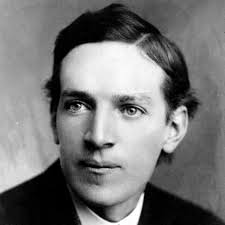The Jungle Page #2
The Jungle is a 1906 novel by the American journalist and novelist Upton Sinclair. Sinclair wrote the novel to portray the harsh conditions and exploited lives of immigrants in the United States in Chicago and similar industrialized cities.
Suddenly some of the steam begins to advance, and, peering through it, you discern Aunt Elizabeth, Ona's stepmother--Teta Elzbieta, as they call her--bearing aloft a great platter of stewed duck. Behind her is Kotrina, making her way cautiously, staggering beneath a similar burden; and half a minute later there appears old Grandmother Majauszkiene, with a big yellow bowl of smoking potatoes, nearly as big as herself. So, bit by bit, the feast takes form--there is a ham and a dish of sauerkraut, boiled rice, macaroni, bologna sausages, great piles of penny buns, bowls of milk, and foaming pitchers of beer. There is also, not six feet from your back, the bar, where you may order all you please and do not have to pay for it. “Eiksz! Graicziau!” screams Marija Berczynskas, and falls to work herself--for there is more upon the stove inside that will be spoiled if it be not eaten. So, with laughter and shouts and endless badinage and merriment, the guests take their places. The young men, who for the most part have been huddled near the door, summon their resolution and advance; and the shrinking Jurgis is poked and scolded by the old folks until he consents to seat himself at the right hand of the bride. The two bridesmaids, whose insignia of office are paper wreaths, come next, and after them the rest of the guests, old and young, boys and girls. The spirit of the occasion takes hold of the stately bartender, who condescends to a plate of stewed duck; even the fat policeman--whose duty it will be, later in the evening, to break up the fights--draws up a chair to the foot of the table. And the children shout and the babies yell, and every one laughs and sings and chatters--while above all the deafening clamor Cousin Marija shouts orders to the musicians. The musicians--how shall one begin to describe them? All this time they have been there, playing in a mad frenzy--all of this scene must be read, or said, or sung, to music. It is the music which makes it what it is; it is the music which changes the place from the rear room of a saloon in back of the yards to a fairy place, a wonderland, a little corner of the high mansions of the sky. The little person who leads this trio is an inspired man. His fiddle is out of tune, and there is no rosin on his bow, but still he is an inspired man--the hands of the muses have been laid upon him. He plays like one possessed by a demon, by a whole horde of demons. You can feel them in the air round about him, capering frenetically; with their invisible feet they set the pace, and the hair of the leader of the orchestra rises on end, and his eyeballs start from their sockets, as he toils to keep up with them. Tamoszius Kuszleika is his name, and he has taught himself to play the violin by practicing all night, after working all day on the “killing beds.” He is in his shirt sleeves, with a vest figured with faded gold horseshoes, and a pink-striped shirt, suggestive of peppermint candy. A pair of military trousers, light blue with a yellow stripe, serve to give that suggestion of authority proper to the leader of a band. He is only about five feet high, but even so these trousers are about eight inches short of the ground. You wonder where he can have gotten them or rather you would wonder, if the excitement of being in his presence left you time to think of such things. For he is an inspired man. Every inch of him is inspired--you might almost say inspired separately. He stamps with his feet, he tosses his head, he sways and swings to and fro; he has a wizened-up little face, irresistibly comical; and, when he executes a turn or a flourish, his brows knit and his lips work and his eyelids wink--the very ends of his necktie bristle out. And every now and then he turns upon his companions, nodding, signaling, beckoning frantically--with every inch of him appealing, imploring, in behalf of the muses and their call. For they are hardly worthy of Tamoszius, the other two members of the orchestra. The second violin is a Slovak, a tall, gaunt man with black-rimmed spectacles and the mute and patient look of an overdriven mule; he responds to the whip but feebly, and then always falls back into his old rut. The third man is very fat, with a round, red, sentimental nose, and he plays with his eyes turned up to the sky and a look of infinite yearning. He is playing a bass part upon his cello, and so the excitement is nothing to him; no matter what happens in the treble, it is his task to saw out one long-drawn and lugubrious note after another, from four o'clock in the afternoon until nearly the same hour next morning, for his third of the total income of one dollar per hour. Before the feast has been five minutes under way, Tamoszius Kuszleika has risen in his excitement; a minute or two more and you see that he is beginning to edge over toward the tables. His nostrils are dilated and his breath comes fast--his demons are driving him. He nods and shakes his head at his companions, jerking at them with his violin, until at last the long form of the second violinist also rises up. In the end all three of them begin advancing, step by step, upon the banqueters, Valentinavyczia, the cellist, bumping along with his instrument between notes. Finally all three are gathered at the foot of the tables, and there Tamoszius mounts upon a stool. Now he is in his glory, dominating the scene. Some of the people are eating, some are laughing and talking--but you will make a great mistake if you think there is one of them who does not hear him. His notes are never true, and his fiddle buzzes on the low ones and squeaks and scratches on the high; but these things they heed no more than they heed the dirt and noise and squalor about them--it is out of this material that they have to build their lives, with it that they have to utter their souls. And this is their utterance; merry and boisterous, or mournful and wailing, or passionate and rebellious, this music is their music, music of home. It stretches out its arms to them, they have only to give themselves up. Chicago and its saloons and its slums fade away--there are green meadows and sunlit rivers, mighty forests and snow-clad hills. They behold home landscapes and childhood scenes returning; old loves and friendships begin to waken, old joys and griefs to laugh and weep. Some fall back and close their eyes, some beat upon the table. Now and then one leaps up with a cry and calls for this song or that; and then the fire leaps brighter in Tamoszius' eyes, and he flings up his fiddle and shouts to his companions, and away they go in mad career. The company takes up the choruses, and men and women cry out like all possessed; some leap to their feet and stamp upon the floor, lifting their glasses and pledging each other. Before long it occurs to some one to demand an old wedding song, which celebrates the beauty of the bride and the joys of love. In the excitement of this masterpiece Tamoszius Kuszleika begins to edge in between the tables, making his way toward the head, where sits the bride. There is not a foot of space between the chairs of the guests, and Tamoszius is so short that he pokes them with his bow whenever he reaches over for the low notes; but still he presses in, and insists relentlessly that his companions must follow. During their progress, needless to say, the sounds of the cello are pretty well extinguished; but at last the three are at the head, and Tamoszius takes his station at the right hand of the bride and begins to pour out his soul in melting strains.
Translation
Translate and read this book in other languages:
Select another language:
- - Select -
- 简体中文 (Chinese - Simplified)
- 繁體中文 (Chinese - Traditional)
- Español (Spanish)
- Esperanto (Esperanto)
- 日本語 (Japanese)
- Português (Portuguese)
- Deutsch (German)
- العربية (Arabic)
- Français (French)
- Русский (Russian)
- ಕನ್ನಡ (Kannada)
- 한국어 (Korean)
- עברית (Hebrew)
- Gaeilge (Irish)
- Українська (Ukrainian)
- اردو (Urdu)
- Magyar (Hungarian)
- मानक हिन्दी (Hindi)
- Indonesia (Indonesian)
- Italiano (Italian)
- தமிழ் (Tamil)
- Türkçe (Turkish)
- తెలుగు (Telugu)
- ภาษาไทย (Thai)
- Tiếng Việt (Vietnamese)
- Čeština (Czech)
- Polski (Polish)
- Bahasa Indonesia (Indonesian)
- Românește (Romanian)
- Nederlands (Dutch)
- Ελληνικά (Greek)
- Latinum (Latin)
- Svenska (Swedish)
- Dansk (Danish)
- Suomi (Finnish)
- فارسی (Persian)
- ייִדיש (Yiddish)
- հայերեն (Armenian)
- Norsk (Norwegian)
- English (English)
Citation
Use the citation below to add this book to your bibliography:
Style:MLAChicagoAPA
"The Jungle Books." Literature.com. STANDS4 LLC, 2025. Web. 9 Mar. 2025. <https://www.literature.com/book/the_jungle_272>.








Discuss this The Jungle book with the community:
Report Comment
We're doing our best to make sure our content is useful, accurate and safe.
If by any chance you spot an inappropriate comment while navigating through our website please use this form to let us know, and we'll take care of it shortly.
Attachment
You need to be logged in to favorite.
Log In